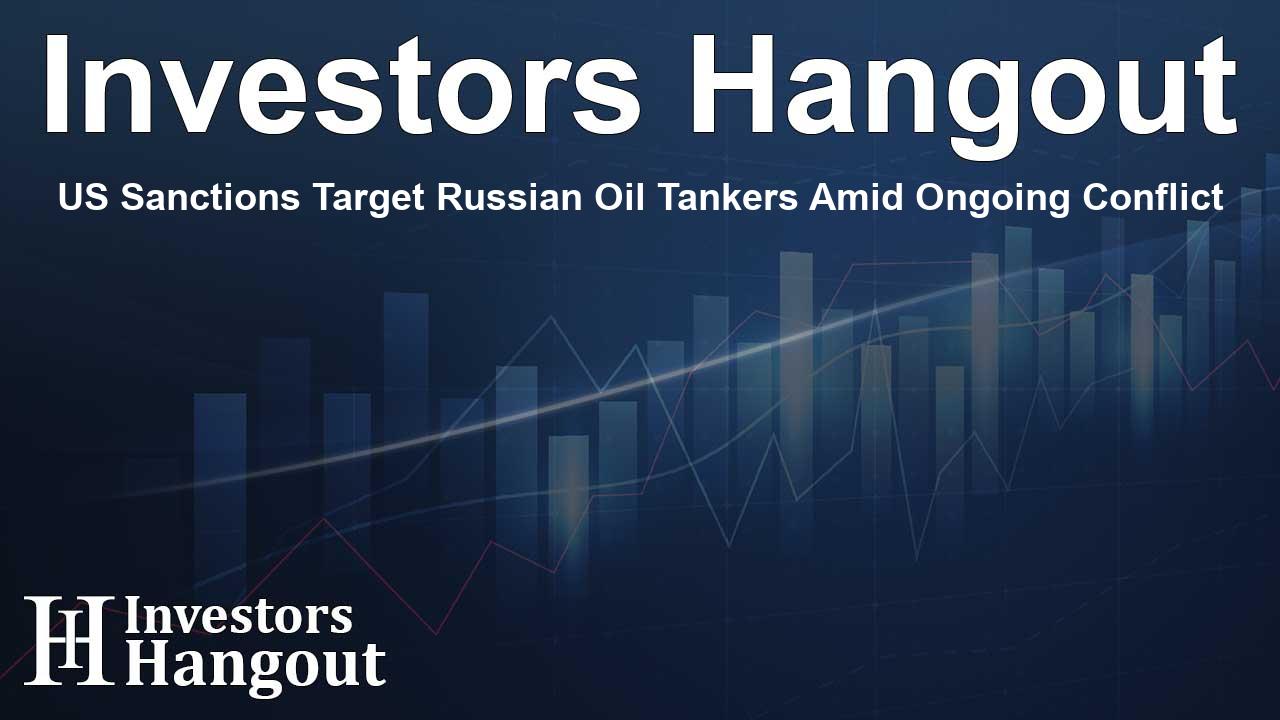US Sanctions Target Russian Oil Tankers Amid Ongoing Conflict

US Government's Approach to Sanctioning Russian Oil Tankers
The Biden administration is ramping up efforts to impose additional sanctions on Russia due to its ongoing conflict with Ukraine. This new wave of sanctions particularly targets tankers involved in transporting Russian crude oil, as part of a strategic plan to diminish Russia's oil revenue stream.
Details of the New Sanctions Initiative
According to sources familiar with the situation, the upcoming sanctions will specifically focus on tankers that are found to be transporting Russian oil priced above the established $60 per barrel cap. This price cap was instituted as a part of a broader strategy by Western nations to limit Russia's financial capabilities linked to its military actions.
The Shadow Fleet's Role
Russia has been utilizing a network of aging vessels, often referred to as the 'shadow fleet,' to bypass these sanctions. Many of these ships are less compliant with safety standards and are more likely to leak oil into the seas, creating environmental hazards.
Impacts on Russia's Oil Trade
Since the onset of the war in February 2022, the US has sanctioned numerous vessels that are part of this shadow fleet, aiming to significantly reduce Russia's funding for its military operations. In response to the sanctions, Russia has redirected its oil exports towards countries such as China and India, which have shown a willingness to purchase Russian oil despite the sanctions.
Reactions to the Price Cap
Although these transactions may occur above the price cap, Russian crude is typically sold at a discounted rate compared to global market prices. This has allowed Russia to continue its oil trade while navigating around the price restrictions imposed by Western allies.
Future of Sanctions on the Horizon
One source indicated that this sanctions package is expected to be significant, with additional measures targeting individuals connected to networks that facilitate the transportation and trading of oil above the cap price. U.S. Treasury Secretary Janet Yellen has also acknowledged the potential for future sanctions that may even extend to Chinese banks, aiming to tighten the financial squeeze on Russia.
Official Commentary
While the Treasury’s Office of Foreign Assets Control has not provided immediate commentary regarding the upcoming sanctions, the collective efforts by the G7, the EU, and Australia to impose the $60 price cap is indicative of a global stance against Russia's actions. This collaboration aims to curb Russia's position as one of the world's leading oil producers.
Conclusion and Implications
In conclusion, as the geopolitical landscape continues to shift, the United States remains committed to implementing further sanctions against Russia's oil sector. The anticipated package may not only bolster Ukraine's defense efforts but also send a strong message regarding the international community's opposition to the invasion.
Frequently Asked Questions
What are the new sanctions targeting?
The new sanctions specifically target tankers transporting Russian oil sold above the established $60 per barrel cap set by Western nations.
How does the shadow fleet operate?
The shadow fleet consists of older vessels that Russia uses to evade sanctions, often working outside standard safety protocols.
What impact will these sanctions have on Russia's economy?
These sanctions are intended to substantially cut into Russia's oil revenues, which are crucial for funding its military operations in Ukraine.
How have Russia's oil exports changed due to sanctions?
In response to sanctions, Russia has redirected its oil exports primarily towards countries like China and India, which have continued to purchase Russian crude.
What are the potential implications for international banks?
Future sanctions may target Chinese banks, aiming to further restrict Russia's access to international financial systems and hinder its oil revenue streams.
About The Author
Contact Olivia Taylor privately here. Or send an email with ATTN: Olivia Taylor as the subject to contact@investorshangout.com.
About Investors Hangout
Investors Hangout is a leading online stock forum for financial discussion and learning, offering a wide range of free tools and resources. It draws in traders of all levels, who exchange market knowledge, investigate trading tactics, and keep an eye on industry developments in real time. Featuring financial articles, stock message boards, quotes, charts, company profiles, and live news updates. Through cooperative learning and a wealth of informational resources, it helps users from novices creating their first portfolios to experts honing their techniques. Join Investors Hangout today: https://investorshangout.com/
The content of this article is based on factual, publicly available information and does not represent legal, financial, or investment advice. Investors Hangout does not offer financial advice, and the author is not a licensed financial advisor. Consult a qualified advisor before making any financial or investment decisions based on this article. This article should not be considered advice to purchase, sell, or hold any securities or other investments. If any of the material provided here is inaccurate, please contact us for corrections.
